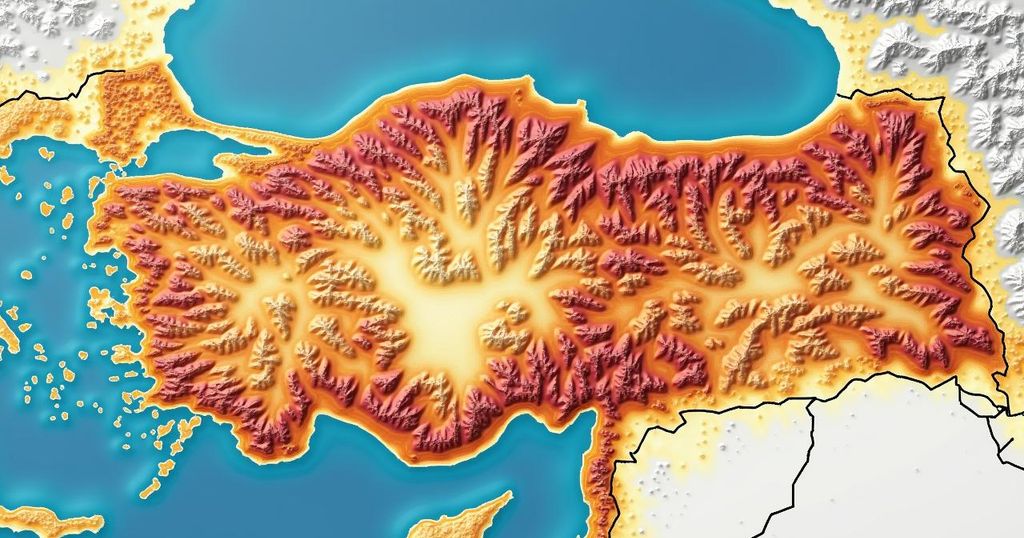A magnitude 6.1 earthquake struck eastern Turkey, with the European-Mediterranean Seismological Centre (EMSC) reporting its depth at 10 kilometers. The local authorities are assessing potential damage and casualties, emphasizing the ongoing seismic risks in the region.
A magnitude 6.1 earthquake struck the eastern region of Turkey, as reported by the European-Mediterranean Seismological Centre (EMSC). The earthquake occurred at a depth of approximately 10 kilometers, and while specific details regarding the damage or casualties are yet to be reported, the event raised concerns due to the region’s history of seismic activity. Local authorities are currently assessing the situation to determine any potential impacts on communities affected. The earthquake serves as a reminder of the ongoing risks associated with seismic events in Turkey, which is situated within an active tectonic zone.
Turkey is situated on several active fault lines, making it particularly susceptible to earthquakes. The eastern region of the country has experienced numerous seismic events in the past, leading to significant damage and loss of life. Understanding the geological dynamics of the area is essential for preparedness and response efficiency. This recent earthquake highlights the continued vigilance required by authorities and communities in earthquake-prone regions, as they work to mitigate risks and enhance their resilience against such natural disasters.
In conclusion, the magnitude 6.1 earthquake that struck eastern Turkey underscores the persistent seismic risks the country faces. As local authorities continue their evaluations, it is crucial for communities to remain informed and prepared for the potential aftermath of such seismic events. The need for effective disaster response measures and public safety protocols remains paramount in mitigating the impacts of future earthquakes.
Original Source: www.jpost.com







